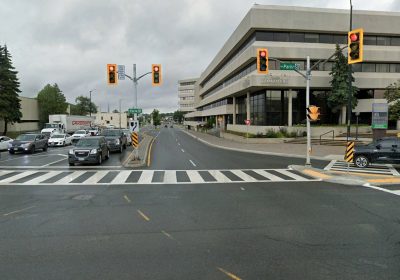BDB Data Revenue Model

BDB Data Revenue Model: Unlocking New Dimensions of Civic Transparency and Engagement
Bridging the Data Divide for Communities and Businesses
The BDB (Big Data Bureaucracy) Data Revenue Model leverages publicly available but poorly organized datasets, such as municipal operations, policy outcomes, enforcement practices, and spending data. By centralizing and democratizing access to these datasets, 200BradyStreet aims to make civic transparency actionable for both individuals and organizations.
To maximize its impact and scalability, the BDB model includes targeted strategies for two key categories of users:
From B2C to B2B: Tailored Revenue Models for Different Audiences
1. B2C (Business-to-Consumer): Empowering Individuals and Communities
- Definition: B2C refers to interactions and transactions between a business and individual consumers.
- Focus: The B2C approach within the BDB model is centered on empowering citizens by giving them access to data and tools that enhance their ability to hold governments accountable.
- Monetization Opportunities:
- Freemium Access: Provide basic data and insights for free while offering advanced analytics, comparative visualizations, and custom reports for a subscription fee.
- Paid FOI Submission Services: Simplify FOI requests for individuals by automating forms, tracking progress, and handling submissions for a nominal fee.
- Consumer Ads: Display relevant ads, such as legal services or advocacy campaigns, targeting individuals who need help with FOI requests or contesting fines.
- Gamification: Encourage individual contributions (e.g., FOI submissions or ticket data uploads) through point systems, badges, or premium access rewards.
2. B2B (Business-to-Business): Enabling Data-Driven Decision-Making
- Definition: B2B involves transactions and services provided between businesses or organizations.
- Focus: The B2B approach targets organizations that require robust, curated datasets and advanced analytics for their operations, research, or advocacy.
- Monetization Opportunities:
- API Access and Data Licensing: Offer real-time data feeds or bulk dataset downloads to businesses, universities, NGOs, and advocacy groups for a subscription fee.
- Custom Reporting: Develop industry-specific reports for sectors like real estate, urban planning, legal services, and public policy research.
- Partnerships: Collaborate with law firms, civic tech startups, or advocacy organizations, providing tailored data solutions or sharing referral revenue.
- White-Label Data Platforms: Allow other organizations to use the 200BradyStreet data infrastructure under their branding, targeting specific regions or industries.
Why B2C and B2B Are Vital Components of the BDB Model
- Complementary Revenue Streams:
- B2C focuses on scaling community engagement and citizen empowerment.
- B2B targets high-value clients and recurring revenue through licensing, subscriptions, and consulting services.
- Scalability and Impact:
- The B2C model drives mass adoption by creating a broad base of engaged users.
- The B2B model offers deeper, monetized insights to organizations that influence policy, legal decisions, and advocacy campaigns.
- Shared Mission of Transparency:
- Both models align with 200BradyStreet’s mission by making civic data accessible, actionable, and impactful across a spectrum of users.
Investor Appeal
- Scalable Potential: The universality of municipal data and its relevance to both B2C and B2B markets make this a global opportunity.
- Diverse Revenue Streams: Subscriptions, API access, data licenses, and custom reports cater to different user bases, creating predictable and recurring income.
- Alignment with Corporate Social Responsibility (CSR): Companies investing in transparency and community development will see 200BradyStreet as a mission-driven partner.
Conclusion: A Dual-Channel Approach to Maximizing Impact
By integrating B2C and B2B strategies into the BDB Data Revenue Model, 200BradyStreet creates a comprehensive platform that serves both individual citizens and large organizations. This dual approach enhances the platform’s ability to drive civic engagement, foster transparency, and build a sustainable, scalable revenue model that aligns with its mission of empowering communities worldwide.
Related Posts

200BradyStreet’s Legal Recovery Model: Turning Transparency into Justice and Revenue
200BradyStreet is not just about exposing the hidden realities of automated enforcement; it's about empowering…

Tapping into a Multi-Billion-Dollar Market for Transparency and Accountability
200BradyStreet is positioned to capitalize on a rapidly growing market driven by concerns over automated…

Centralized Expertise Revenue Model
Centralized Expertise Revenue Model: Harnessing Global User Engagement Creating a Knowledge Network of Global Expertise…
